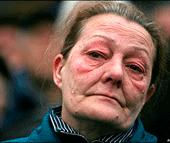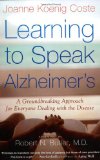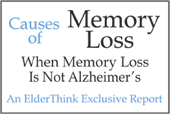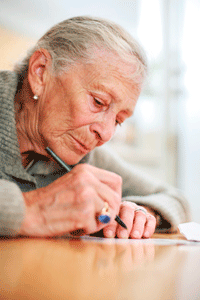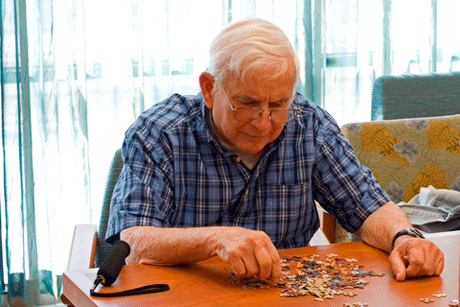
Seven Stages of Alzheimer's Disease
For different people these stages will be longer or shorter
From The Definitions Published by Barry Reisberg, MD, 1982
Stage 1
This stage doesn't really have any symptoms. Researchers know that the disease is working silently in the background even though the person does not have any memory problems. Even the doctor can't tell.
Stage 2
At Stage 2, the person may feel as if he or she is having memory lapses — forgetting familiar words or the location of everyday objects. But no symptoms of dementia can be detected during a medical exam or by friends, family or co-workers.
Stage 3
This is considered early-stage Alzheimer's. It us very difficult to diagnose, though friends and family may begin to notice difficulties. The most noticeable symptom is inability to concentrate. Other problems could be coming up with the right word or name, trouble remembering names when introduced to new people, having noticeably greater difficulty performing tasks in social or work settings, forgetting material that has just been read, losing or misplacing a valuable object, and increasing trouble with planning or organizing. Of course these symptoms can show up in anyone who is experiencing stress or grief.
Stage 4
At this point, a careful medical interview should be able to detect clear-cut symptoms. these would include forgetfulness of recent events, real difficulty with challenging mental arithmetic (such as counting backward from 100 by 7s), greater difficulty doing things that were previously easy like planning dinner for guests, becoming moody or withdrawn, and behaving oddly in socially or mentally challenging situations
Stage 5
By stage 5, gaps in memory and thinking are noticeable, and individuals begin to need help with day-to-day activities. Noticeable behavior would include a persons inability to recall her own address or telephone number, becoming confused about what day it is, getting lost easily, or needing help choosing proper clothing
Stage 6
Personality changes may take place and the person needs more help with daily activities. This is the saddest stage because the person cannot recognize a loved one but knows there is something familiar. The person needs help dressing properly and may, without supervision, make mistakes such as putting pajamas over daytime clothes or shoes on the wrong feet. Now there are major changes in sleep patterns — sleeping during the day and becoming restless at night. The person needs help handling the details of toileting (for example, flushing the toilet, wiping or disposing of tissue properly) and has increasingly frequent trouble controlling their bladder or bowels. At Stage 6, the disease creates major personality and behavioral changes, including suspiciousness and delusions (such as believing that their caregiver is an impostor) or compulsive, repetitive behavior like hand-wringing or tissue shredding. There is a tendancy to wander or become lost
Stage 7
In the final stage of this disease, individuals lose the ability to respond to their environment, to carry on a conversation and, eventually, to control movement. They may still say words or phrases. At this stage, individuals need help with much of their daily personal care, including eating or using the toilet. They may also lose the ability to smile, to sit without support and to hold their heads up. Reflexes become abnormal. Muscles grow rigid. Swallowing can be impaired.
Of course not everyone will experience the same symptoms or progress at the same rate. This seven-stage framework is based on a system developed in 1982 by Barry Reisberg, M.D., clinical director of the New York University School of Medicine's Silberstein Alzheimer's Institute. When experts refer to a person being in stage 5 or stage 6, they are referring to Dr. Reisberg's scale of seven stages.
